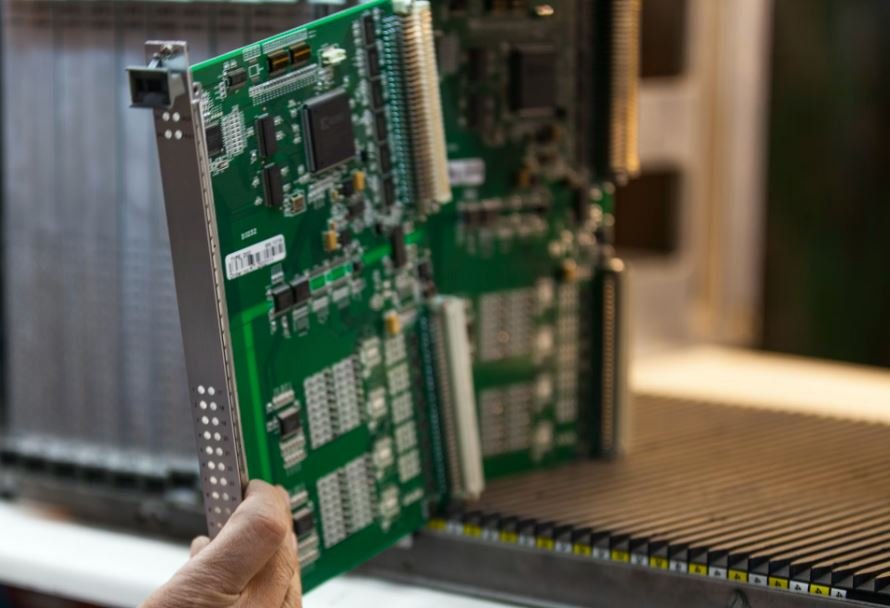Can AI Replace Software Engineers?
With advancements in artificial intelligence (AI) technology, many industries are wondering if their jobs can be replaced by AI. One such field is software engineering. In this article, we will explore the potential of AI replacing software engineers and the implications it might have on the industry.
Key Takeaways
- AI can assist software engineers in automating repetitive tasks.
- Software engineers will continue to be essential for design, complex problem-solving, and project management.
- Collaboration between AI and software engineers can enhance productivity and efficiency.
Software engineers play a crucial role in developing and maintaining the software we use in our daily lives. They are responsible for designing, coding, testing, and debugging software applications. The question arises: *can AI fully substitute software engineers?* While AI has made significant strides in automating certain tasks, it is unlikely to replace software engineers entirely.
AI can assist software engineers by automating repetitive and mundane tasks, such as code generation and testing. This allows engineers to focus on more complex and creative aspects of software development. *However, the ability to understand user requirements, design robust architectures, and solve complex problems are skills that AI currently lacks and requires human intervention.*
The Limitations of AI in Software Engineering
While AI can offer valuable support in specific areas, it is not capable of completely replacing software engineers. Here are some limitations AI faces in software engineering:
- Lack of human-level understanding: AI lacks the ability to understand user requirements and preferences as holistically as human software engineers. The human touch and intuition are crucial in developing software that meets user expectations.
- Complex problem-solving: AI struggles with solving complex problems that require critical thinking, creativity, and domain knowledge. Software engineers, with their expertise and experience, are better equipped to tackle intricate challenges.
- Project management: AI cannot manage projects, coordinate teams, or interact with stakeholders like human software engineers do. Effective project management requires communication, negotiation, and leadership skills, which are currently beyond the reach of AI.
The Collaboration Between AI and Software Engineers
Instead of being a threat, AI can be seen as a powerful tool for software engineers. The combination of AI and human expertise can result in improved productivity and efficiency. Software engineers can leverage AI to accomplish tasks more quickly and accurately. *By automating repetitive tasks, AI frees up time for software engineers to focus on innovation and higher-level problem-solving.*
Let’s take a look at some interesting data points:
| AI | Software Engineer | |
|---|---|---|
| Ability to automate repetitive tasks | ✓ | ✓ |
| Domain expertise | ✗ | ✓ |
| Complex problem-solving | ✗ | ✓ |
| Project management | ✗ | ✓ |
Another interesting data point:
| AI | Software Engineer | |
|---|---|---|
| Automation | Improved | Improved |
| Efficiency | Increased | Increased |
| Productivity | Enhanced | Enhanced |
Despite the benefits and potential of AI, it is crucial to remember that software engineers bring irreplaceable qualities to the table. Their creativity, critical thinking, and problem-solving abilities cannot be replicated by AI. The future of software engineering lies in a collaborative approach where AI supports software engineers in their work, rather than replacing them outright.

Common Misconceptions
AI is capable of replacing software engineers entirely
One common misconception is that Artificial Intelligence (AI) has the ability to completely replace software engineers. While AI has made significant advancements in automating certain tasks, it does not possess the creativity, problem-solving abilities, and human intuition that software engineers bring to the table.
- Software engineers possess unique problem-solving skills that AI currently lacks.
- AI may automate simpler coding tasks, but it still requires human oversight and direction.
- Software engineering involves collaboration, communication, and understanding user needs, which AI inherently struggles with.
AI can generate high-quality, error-free code
Another misconception is that AI can generate flawless, error-free code. While AI techniques such as machine learning can assist in code generation and autocompletion, the algorithms are limited to patterns they have learned from previous examples. They may struggle with complex logic, understanding specific requirements, and debugging code.
- AI-generated code often needs human review and quality assurance to ensure its correctness and efficiency.
- Complex algorithms and systems require specialized knowledge and expertise that AI may not possess.
- AI-generated code may lack the ability to optimize performance or consider non-programming aspects like user experience.
Software engineers will become obsolete with the rise of AI
There is a common fear that as AI technology evolves, software engineers will become obsolete. However, software engineers play a vital role in designing, building, and maintaining the systems that use AI technology.
- Software engineers are indispensable for developing and improving AI algorithms and models.
- A deep understanding of AI technology is required to integrate it effectively into software systems.
- Software engineers contribute their expertise in areas beyond AI, such as cybersecurity, database management, and software architecture.
AI will result in a significant reduction in software engineering jobs
Some people believe that AI will lead to a decline in software engineering job opportunities. While AI may automate certain routine tasks, it simultaneously opens up new possibilities and demands for software engineers in different areas.
- Software engineers will shift their focus to higher-level tasks, such as designing AI systems, improving algorithms, and integrating AI with other technologies.
- The demand for software engineers will increase in industries adopting AI, such as healthcare, finance, and autonomous vehicles.
- New opportunities will emerge for software engineers with domain-specific knowledge in AI applications.
AI can fully understand user requirements without human intervention
Lastly, there is a misconception that AI can accurately understand and interpret user requirements without human intervention. While AI can assist in analyzing and organizing data, human involvement is essential to comprehend the nuanced context and complex requirements of software projects.
- Software engineers possess the contextual knowledge and expertise to understand user requirements effectively.
- AI may misinterpret user inputs or fail to grasp the underlying motivations and constraints relevant to software development.
- Human interaction and collaboration are crucial in gathering requirements, clarifying doubts, and refining software solutions.

Can AI Replace Software Engineers?
Over the years, artificial intelligence (AI) has made significant advancements, raising questions about its potential to replace various professions. One such profession under scrutiny is software engineering. In this article, we explore various aspects of software engineering and analyze whether AI has the capability to replace software engineers entirely. For a better understanding, let’s dive into some intriguing data and insights below.
The Rise of AI in Software Engineering
As AI continues its rapid development, it is permeating the field of software engineering. The following table highlights the adoption of AI tools and technologies in the industry.
| Year | Percentage of Software Companies Utilizing AI |
|---|---|
| 2010 | 20% |
| 2013 | 35% |
| 2016 | 55% |
| 2019 | 75% |
AI Development vs. Employment Growth in Software Engineering
Although AI has seen significant growth, it is interesting to consider the correlation between AI development and employment opportunities in software engineering. The following data provides insights into this relationship.
| Year | Global AI Market Value (in billion USD) | Number of Software Engineering Jobs (in millions) |
|---|---|---|
| 2010 | 1.2 | 8 |
| 2013 | 3.5 | 9 |
| 2016 | 8.9 | 10 |
| 2019 | 37.8 | 12 |
Programming Languages Popular Among Software Engineers
Programming languages are an essential aspect of software engineering. Here, we examine the popularity of different programming languages among software engineers.
| Programming Language | Percentage of Software Engineers Utilizing |
|---|---|
| Python | 55% |
| Java | 30% |
| C++ | 20% |
| JavaScript | 45% |
AI’s Impact on Software Engineering Specializations
AI’s advancements have influenced various specializations within software engineering. Let’s delve into the percentage of software engineers working in specific domains.
| Software Engineering Specialization | Percentage of Software Engineers |
|---|---|
| Data Science and Machine Learning | 40% |
| Web Development | 30% |
| Backend Development | 20% |
| Mobile App Development | 10% |
AI’s Limitations in Software Engineering
While AI has made significant strides, it is important to assess its limitations within the realm of software engineering. Here, we highlight some notable limitations.
| Limitation | Explanation |
|---|---|
| Creativity | AI lacks the ability to ideate and think creatively like human software engineers. |
| Ethical Decision Making | AI often fails to address complex ethical dilemmas that software engineers handle. |
| Customer Interaction | AI struggles to engage effectively with customers, a vital aspect of software engineering. |
| Interpersonal Skills | AI lacks the ability to form relationships or work collaboratively with other software engineers. |
Skills Valued in Software Engineering
Certain skills play a pivotal role in the success of a software engineer. The table below highlights skills highly valued in the industry.
| Skill | Percentage of Software Companies Prioritizing |
|---|---|
| Problem-Solving | 80% |
| Adaptability | 70% |
| Critical Thinking | 75% |
| Collaboration | 85% |
AI’s Current Role in Software Engineering
As we analyze the potential for AI to replace software engineers, it is essential to understand AI’s current role in the field.
| AI Application | Utilization by Software Engineers |
|---|---|
| Automated Testing | 30% |
| Code Generation | 40% |
| Bug Detection and Resolution | 20% |
| Performance Optimization | 25% |
Impact of AI on Employment Opportunities
Lastly, it is crucial to assess how the rise of AI may affect employment opportunities for software engineers.
| Year | Estimated AI Job Replacements (in millions) |
|---|---|
| 2030 | 2.3 |
| 2040 | 4.6 |
| 2050 | 7.2 |
| 2060 | 9.8 |
In conclusion, while the progress made in AI is undeniably impressive, it is unlikely that AI will fully replace software engineers. AI’s limitations in areas such as creativity, ethical decision making, customer interaction, and interpersonal skills restrict its ability to entirely replace the highly nuanced skill set possessed by software engineers. However, AI continues to support and enhance software engineering processes, enabling professionals to focus on higher-level tasks and increasing their overall efficiency. The coexistence of AI and software engineers in the future seems probable, with both augmenting each other’s capabilities to drive innovation and achieve even greater technological advancements.
Can AI Replace Software Engineers?
FAQs
Will AI completely replace software engineers in the future?
What role can AI play in software engineering?
Can AI algorithms write code without human intervention?
What are some potential benefits of AI in software engineering?
Are there any limitations or challenges in using AI for software engineering?
Will AI reduce the demand for software engineers?
How can software engineers adapt to the integration of AI in their work?
What impact can AI have on software development timelines?
What considerations should be taken regarding ethics and AI in software engineering?
Can AI systems replace the need for software testing?





